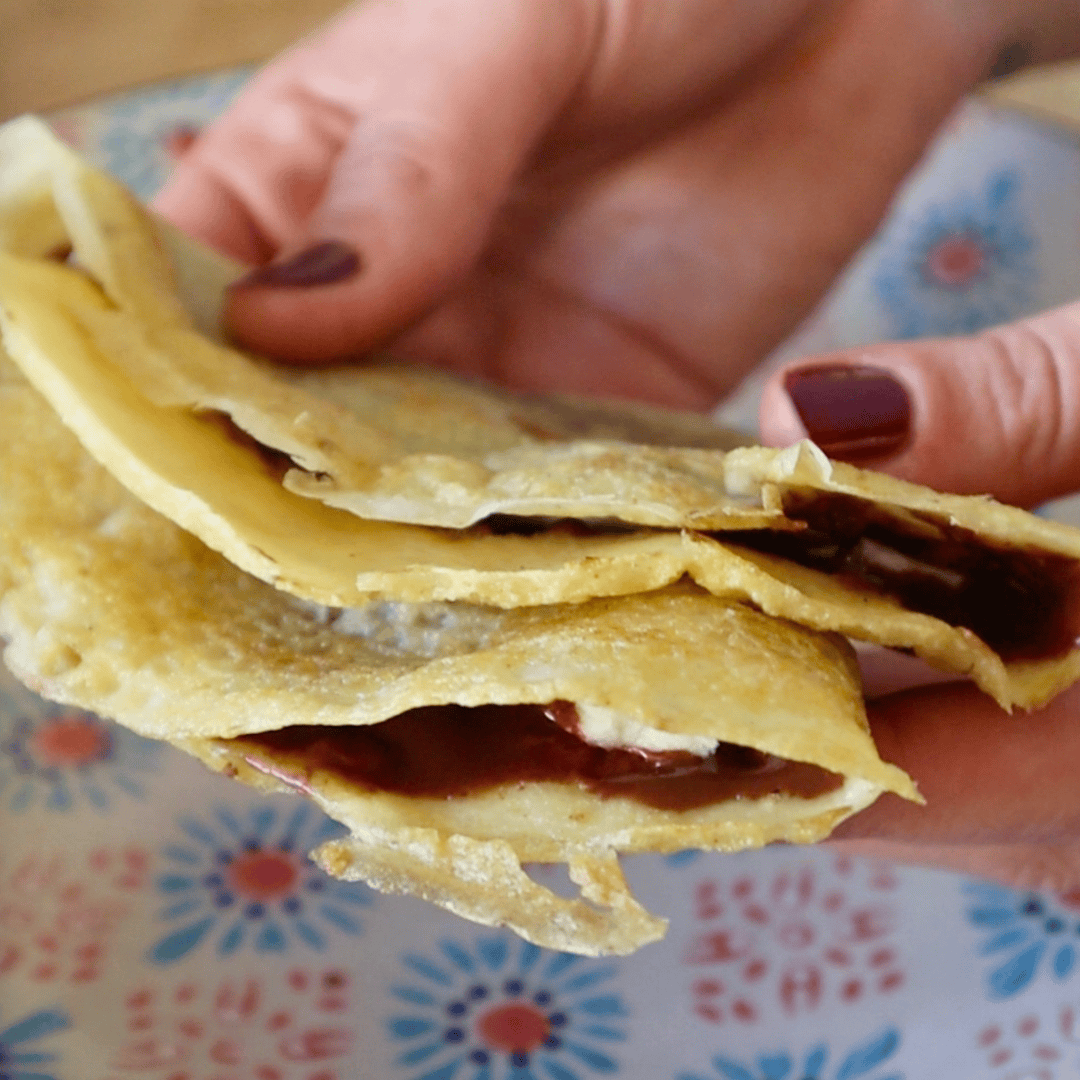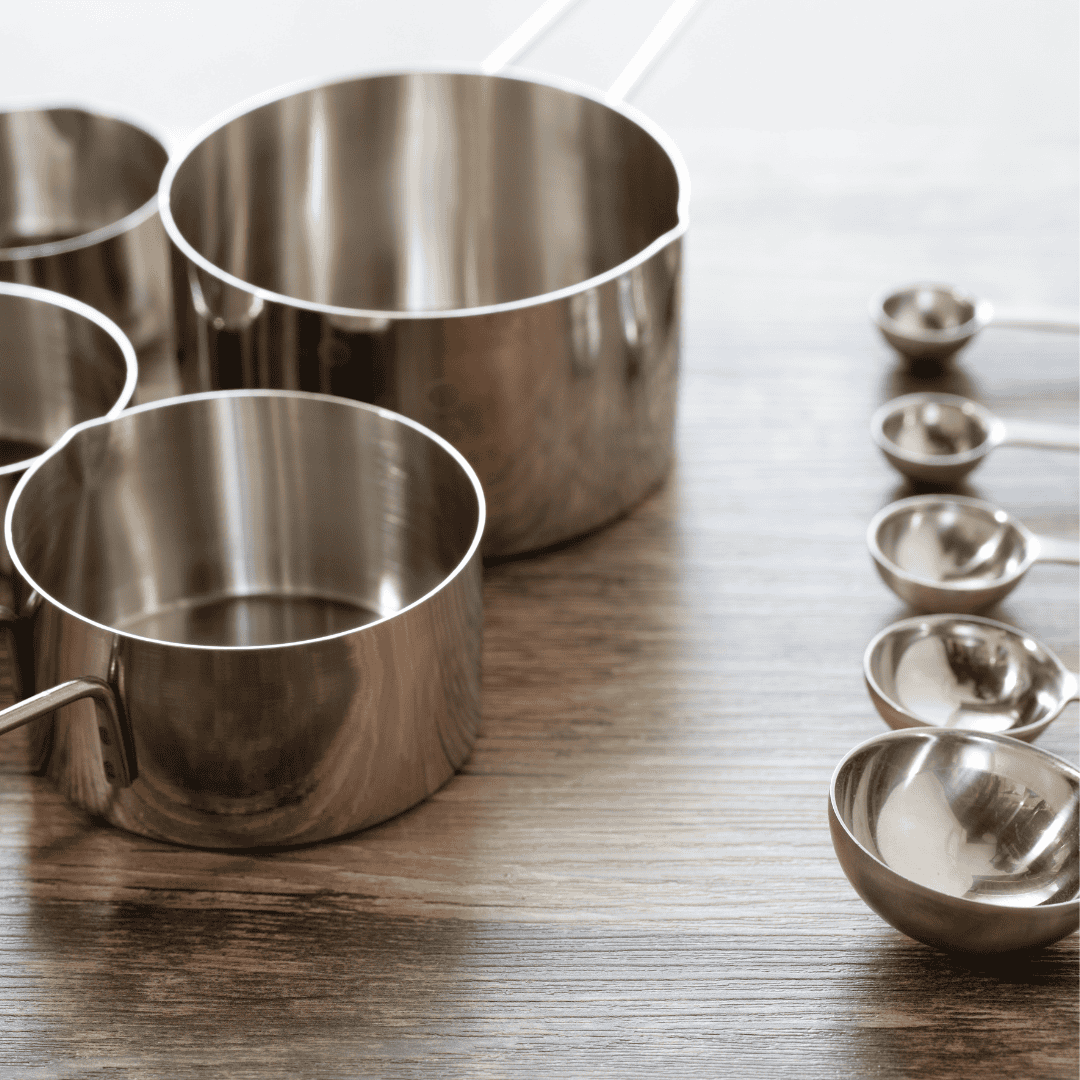Want to reduce your use of plastic in the kitchen? Here are some sustainable kitchen products to be more eco-friendly in the kitchen and reduce your waste.

If you’re looking to become more zero waste, a good place to start is your kitchen. That’s where I first made the changes when I embarked on this zero waste journey. I cook a lot and as a result of that, the kitchen seemed the first obvious place where I should reduce my waste. In this post, you will find some zero waste kitchen tips and sustainable kitchen products to help you embark on this journey!
What does zero-waste mean?
This lifestyle aims to live with less waste and use as many products that can be reused or composted instead of thrown away. Of course, it is really hard to be completely zero waste, as our environmental footprint is so complex, so every step helps the environment in some way!
My story
Trying to be as eco-friendly as possible is part of my lifestyle as I follow a plant-based diet for my health, the animals but also because of the environment. Eating a vegan diet is the “single biggest way” to reduce your environmental impact on the earth, as it’s been shown by a recent study. Nonetheless, I still want to find other ways to reduce my impact on every little thing I do. If you think about it, there are a lot of things in the kitchen that can be avoided and that produce waste, such as plastic wraps, baking paper, and food items. In the past few months, I’ve discovered some very useful alternatives to these things that everyone can use in their kitchen to reduce their waste. Not only are they environmentally friendly, but they’re also budget-friendly. As eco-friendly gadgets are reusable, in most cases you won’t need to buy the product again for a very long time, or never again!
How good does that sound? and it’s so easy!
A useful tip:
Here are some essentials to help you get started in your zero waste journey, but remember that the goal is not to ditch everything. Make sure to re-use everything that you already still have in your house, such as plastic bags, until they are no longer of use and with time you’ll eventually become zero-waste in most things. Remember that every little helps, so even adopting a few of these tips will go a long way!
Psustainable kitchen products:
1. Use reusable bags and produce bags


This in the easiest and most convenient step to start being zero waste. We use so many plastic bags when we do the groceries yet it’s so simple to avoid this.
Remember to reuse any plastic bags that you still have at home though! When they can no longer be it is good to invest in reusable bags and reusable produce bags. The produce bags help to avoid using the small plastic bags to put fresh fruit and vegetables in. They both fold and do not take up much space so they’re easy to keep in your bag or backpack so you don’t forget them.
I know a lot of supermarkets use a lot of plastic and sometimes it’s unavoidable. My advice is to try and buy fruit and vegetables from local shops that usually don’t use plastic and use your own bags, or avoid the products that come in plastic as much as you can!
2. Filter Tap Water To Avoid Plastic Bottles

The most logical thing to do is to not buy plastic bottles but instead drink from the tap. Although if you don’t like the idea of that or you’re worried about the quality, you can buy a filter jug to make sure it’s safe to drink. I own one and I’ve never bought a plastic bottle for my house.
Another option is to install a filter directly on the tap, which might be more convenient as you do not need to wait for the jug to filter it as it is filled.
3. Wrap leftover food and bowls in sustainable wraps
In the UK only, more than 1.2 billion metres of single-use cling film is used by households every year. There are two main ways of replacing cling film. The first is reusable silicone wraps. They come in all sizes and they’re so convenient, not only for food but also to use to wrap bowls and other containers with no lid. They’re elastic and can adapt to different shapes and sizes. The second option if wax wraps. There are bee wax wraps or soy wax wraps, which are the ones I use as I’m vegan.
4. Swap paper towels for reusable bamboo kitchen towel

A bamboo kitchen towel replaces single use paper kitchen towels that are used once and thrown away. I’ve been using this for a while and it’s great. The individual towels can be washed up to 90 times so they will last for so long. They are also more absorbent so will get the job done better than a normal kitchen towel.
5. Swap single baking paper for reusable baking paper

These reusable silicone baking papers are great and convenient. You just need to rinse them before use and then clean them with soap after you use them. I use the oven a lot and this has avoided me buying loads of baking paper. They will last a very long time.
6. Buy in bulk with reusable containers

Photo by Pixabay on Pexels.com
Find nearby bulk stores to avoid buying a lot of single plastic packaging. You can bring your own glass containers and jars and refill anything you need. They sell everything, you can even get refills of soap and other liquids. This is also useful for expensive ingredients like nuts and seeds, if bought in bulk they will be a lot cheaper.
7. Regrow food scraps
For me, this has been such a fun part of trying to reduce my waste! I’ve tried to regrow as much as I can in water and it works perfectly. So far I’ve successfully regrown celery, spring onions and lettuce but there are so many more that you can plant. It’s also very simple, for these I mentioned just cut off the bottom of the vegetable and place it in a jar with water, change it every day and in a few days, you’ll start seeing the roots and the plant growing!

8. Use sustainable brushes and sponges
Another very easy swap. Plastic brushes and sponges don’t last long and contain microplastic which is harmful to the environment. There are many alternatives that will last longer and are eco-friendly. You can swap for wooden brushes and biodegradable sponges. Another option for cleaning is opting for solid washing soaps instead of liquids.
STARTING YOUR ZERO WASTE JOURNEY
I hope these can help you embark on the zero waste journey! Don’t feel overwhelmed by the number of things that you can change, start small, gradually, and remember to reuse what you already have!
Let me know what you’re doing in the kitchen to reduce your waste!













[…] for example I will not be talking about steak knives or meat shredders. I also have a guide on sustainable kitchen products to reduce […]